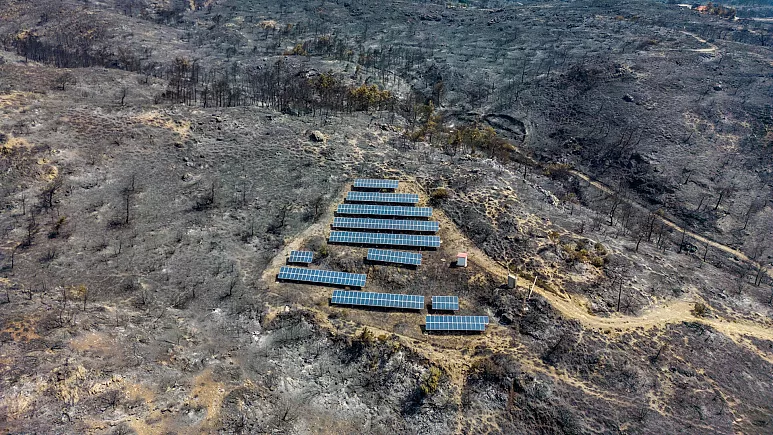Heatwave energy shortages would have been ‘much worse’ without solar power, experts say
time:2023-08-09 09:33:34 Views:0 author:Jinan Freakin Power Ltd.
Record-breaking temperatures have put pressure on Europe's energy systems but increased output from solar is helping to fill the gap.
A major increase in solar power generation in southern Europe played a leading role in preventing energy shortages during recent heatwaves.
In the last few weeks, temperatures have broken records and driven unprecedented demand for air conditioning.
Solar power is particularly suited to coping with summer heat as the sun's radiation is strongest around the hottest part of the day when electricity demand for cooling is also at its highest.
"The very significant growth in solar basically compensates for the peaks that are caused by air conditioning," Kristian Ruby, secretary general of electricity industry group Eurelectric, said of the situation in Spain.

Where has solar power helped deal with the heat?
Spain and Greece are among the countries that have installed many more solar panels in the face of record-high energy prices last year and the quest for increased energy security linked to Russia's invasion of Ukraine.
Spain added a record 4.5 gigawatts of solar photovoltaic capacity last year, resulting in solar energy output in July - typically one of the sunniest months - that was higher than any month to date, Spanish electricity grid operator Red Electrica said.
Data from Ember showed solar provided almost 24 per cent of Spain's electricity in July this year, up from 16 per cent in July 2022.
When soaring temperatures and demand for cooling led to a peak in Sicilian power demand on 24 July, nearly half of the excess demand - which totalled 1.3 GW - was covered by solar, Refinitiv data show.
Sicily's solar production last month was more than double that of July 2022.
"Without the additional solar, the system stability impact would have turned out much worse," Refinitiv power analyst Nathalie Gerl said.
Solar alone cannot hold up grids under severe strain, however. Catania, below Mount Etna in eastern Sicily, has faced power and water supply cuts that local officials partly blamed on the heat.
In Athens, power grid operator IPTO said wildfires had damaged sections of the electricity grid.
But higher solar output helped to satisfy demand in both countries. During Greece's peak power demand this year, also on 24 July, solar photovoltaics covered 3.5GW of the total 10.35GW demand, grid operator IPTO said.
Even in cooler and less sunny Western countries such as Belgium, solar energy has covered more than 100 per cent of the extra energy needed during midday spikes in power demand.




